Guest Blogger: Matthew Collins
Time and time again I come into contact with someone who has spent years working out, eager to transform their body into a lean, mean, fighting machine… you know, someone who looks good naked, who has great strength and endurance, who is the envy of their peers and who constantly makes gains…
The problem is, their physique doesn’t reflect the time, effort and dedication that they put into it.
But they’ve done everything they should be, right?
They’ve gone to the gym 4-5 times a week. Ate pretty well. Put in the man (or woman) hours!
But year after year they look the same. Same old Steve with the same old physique.
What’s the deal?
Whenever I meet someone in this predicament I ask them a few questions to find out what’s the root cause of this lack of results, and more often than not I uncover the same issue.
Failure to properly utilize Progressive Overload.
What is this, you ask?
It’s the Golden Ticket to progress.
The number 1 factor to ensure gains over the long term.
You see, when one first starts their fitness journey they can make progress doing pretty much anything.
Look at a weight and you’ll grow.
This honeymoon phase typically lasts several months then tapers off.
After that? Intelligent lifting needs to take place.
You can no longer rely on your bodies’ ability to grow muscle without a sound plan.
It needs to apply Progressive Overload.
It needs to make things harder through time, to increase the stimulus on the body in order to create the desired response.
Without making things increasingly difficult, our bodies stay the same. And they are really good at that.
Our body doesn’t want to change. It’s hard! Why the hell would it do that? That would go outside of homeostasis and the status quo. It likes the status quo.
But screw that! We don’t! So we need to make things harder and harder until the body grows.
Alas, we have newly found and hard earned muscle!
We’re starting to look good naked, starting to get big and strong, and everyone is jealous as hell. Awesome.
But what constitutes Progressive Overload?
Adding reps, adding weight, increasing difficulty of exercise, increasing intensity, increasing quality of technique, increasing frequency and number of sets (especially at the beginning).
All great ways to increase the demand on our bodies while we punish it with resistance training.
We can change what we can track.
That’s why writing our workouts down is so important. Tracking over the long term can give us valuable information to help us improve through time.
Beth didn’t track her workouts. She went in every day and played it by ear. And when you do that, you’re leaving your results to chance and hoping for the best that you know what you’re doing (you don’t).
To be honest, I did this for years. I was that guy. And I stayed the same for a long time.
Brutal really. To have this massive dedication and desire to develop a Herculean physique but tread water at all times and never get there.
Once I started bringing a notebook to the gym to track my workouts my progress skyrocketed.
If we track it, we can change it. If we change our numbers, we can get stronger. If we get stronger we can change the way our body looks, performs and feels. And that’s when we start becoming the envy of our peers.
Here’s a little example of how this can be done. It’s how I do it and how I program for my clients on a daily basis. It’ll work for you too. I’ll use the example move of the squat.
Squat:
Month 1 day 1: 135lb x 10 x 3
Month 1 day 8: 135lb x 12 x 3
Month 1 day 15: 135lb x 15 x 3
Month 1 day 22: 155lb x 10 x 3
Month 1 day 29: 155lb x 12 x 3
Month 2 day 5: 155lb x 15 x 3
Month 2 day 12: 175lb x 10 x 3
You get the point. Make baby steps toward improving week after week. In this example, we are altering the reps, then the weight, then the reps, then the weight.
Simple as that. Simple, but not easy. Easy is doing the same weight over and over. Challenging is steadily doing more and more, even when our body and mind don’t want to.
And that’s where the money is made.
Obviously there’s more to making a transformation than just progressive overload, but it’s a damn good start.
Decide what your goal is. Create a plan to get there. Implement said plan by tracking the necessary numbers. Reap the benefits of the newly founded gainz.
Good luck. You got this.

Matt Collins leads The Fitness Accelerator. Learn more about Matt and his programs here www.dreambodyaccelerator.com
